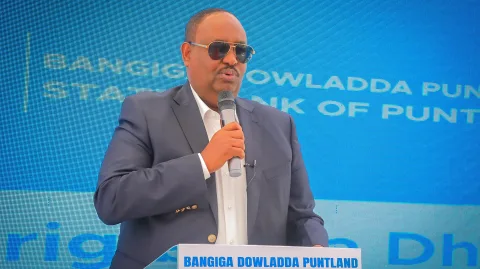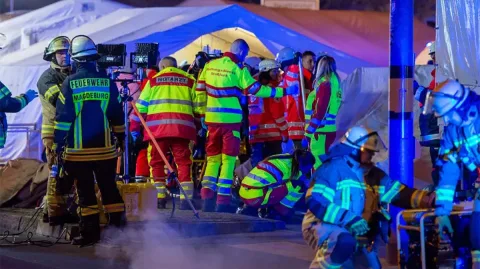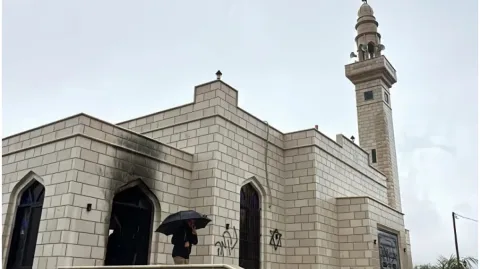Belet Weyne On 22 January, two Islamist groups Al Shabaab and Hisbul Islam recaptured Belet Weyne…
Belet Weyne
On 22 January, two Islamist groups Al Shabaab and Hisbul Islam recaptured Belet Weyne town, Hiraan, following fighting with pro-TFG militia. At least 10 people were killed and more than 21 others were wounded. On 25 January, more fighting was reported in Elgal village, 15 Km on the outskirts of Belet Weyne town killing five people and wounding seven others. According to UNHCR, at least 25,100 civilians have been displaced.
Following the recapture, the Islamist groups seized computers, guard’s weapons and other equipment from offices belonging to the United Nations and International Non-Governmental Organisations. Some of the looted items were later returned.
Other reports indicate that on 26 and 27 January, the Islamist militia beheaded eight people in the outskirts of Belet Weyne town.
Galgaduud
On 27 January, in the towns of Warhole and Owsweyne towns in Galgaduud region, pro-TFG militia clashed with Islamist groups killing at least 23 people and wounding more than 34 others. UNHCR says some 29,100 people remain displaced following clashes since early January. Â
Mogadishu
On 25 January, an explosion at the African Union clinic near Mogadishu’s airport killed and wounded an unknown number of people who were seeking treatment at the clinic. The Special Representative of UN Secretary-General for Somalia who had just departed from Mogadishu with the AU Commissioner for Peace and Security condemned the attack.
Clashes between insurgents and TFG forces continued in the capital, killing and wounding many civilians. On 27 January, in Hodan district, three people died and several others wounded after a public vehicle they were travelling in was caught in crossfire. On 28 January, in another fierce clash, at least 12 people were killed and more than 25 others wounded mostly in Hodan, Wardhiigleey and Hawl Wadaag districts.
Since 1 January, roughly 18,000 people have been displaced from Mogadishu with 13,900 having moved out of the city, while 4,400 others have sought refuge in relatively safer areas of Mogadishu.
Countrywide Displacement
Since 1 January, UNHCR says that 82,000 people have been displaced countrywide, with the majority resulting from the ongoing conflicts.
Explosions in Las Caanood (Northern Somalia)Â
On 28 January, in Las Caanood, Sool region, reports indicate that an explosion occurred reportedly killing a security officer and injuring four people, among them the governor of the region. On 25 January, another explosion was reported when police officers picked up a remote controlled bomb hidden near a mosque killing two officers and injuring three others.
The African Union Mandate extended
On 28 January, the United Nations Security Council authorized the African Union to maintain the African Mission in Somalia (AMISOM) until 31 January 2011. The 15-member body also requested UN Secretary-General Ban Ki-moon to continue to provide a logistical support package for AMISOM, and to continue providing technical and expert advice to the AU in planning and deploying the mission.
Response Â
Health
The Child Health Days (CHDs) campaign that started in Mogadishu in November 2009 reached 288,639 children under five years old and 296,265 women of child-bearing age in all the 16 districts of the city. This is the first time the campaign was implemented in Mogadishu. In the first round the campaign in early 2009, Mogadishu, Lower Shabelle regions, and Kismayo district were not reached due to insecurity and lack of access. More than 1 million children under five years old and 800,000 women of child-bearing age (84 percent of children and 55 percent of women) were reached in other parts of the country. During the second round, which began in August 2009, a total of 955,699 children and 770,200 women were reached in North West and North Eastern and parts of South Central regions.
UNICEF, WHO and partners aim to reach 1.5 million children and 1.2 million women countrywide in each round.
Food Aid
During the week, WFP conducted a test delivery of 60 metric tons of assorted food commodities, which safely arrived in Afgooye from Mogadishu for nutrition programmes. This is the first delivery on a trial basis since WFP pulled out of South Somalia on 5 January. With the arrival of additional food shipments (2,890 metric tons of maize and vegetable oil) in Mogadishu from Mombasa Port on 27 January, WFP food deliveries to Afgooye for IDPs would increase to 3,000 metric tons a month.Â
By the beginning of the week, some 2,900 metric tons of assorted food commodities for over 500,000 beneficiaries was delivered mainly in Central Somalia along with the 60 metric tons for nutrition programmes in Afgooye. The distribution plan for January 2010 was revised down to about 4,600 metric tons to reach half a million Somalis. The revision is mainly due to inaccessibility in several parts of South Central Somalia due to security concerns.
In Mogadishu, WFP and the partners assisted 77,383 vulnerable Somalis with 220 metric tons of assorted food commodities under the wet feeding programme during the week. The violence in Mogadishu has resulted in the number of vulnerable Somalis receiving hot meals in the various kitchens across the city fall by 2,617 this week. An additional 980 beneficiaries in the hospital received about four metric tons of food under institutional feeding.
Logistics
The UN Humanitarian Air Services will from this weekend divert flights from Hargeysa to Berbera, Somaliland due to the poor conditions of the runway.
Contact: For further information in English, contact: Rita Maingi on +254 734 800 120 – maingir@un.org In Somali or English, contact Muna Mohamed on + 254 733 643 737 – mohamed26@un.org





